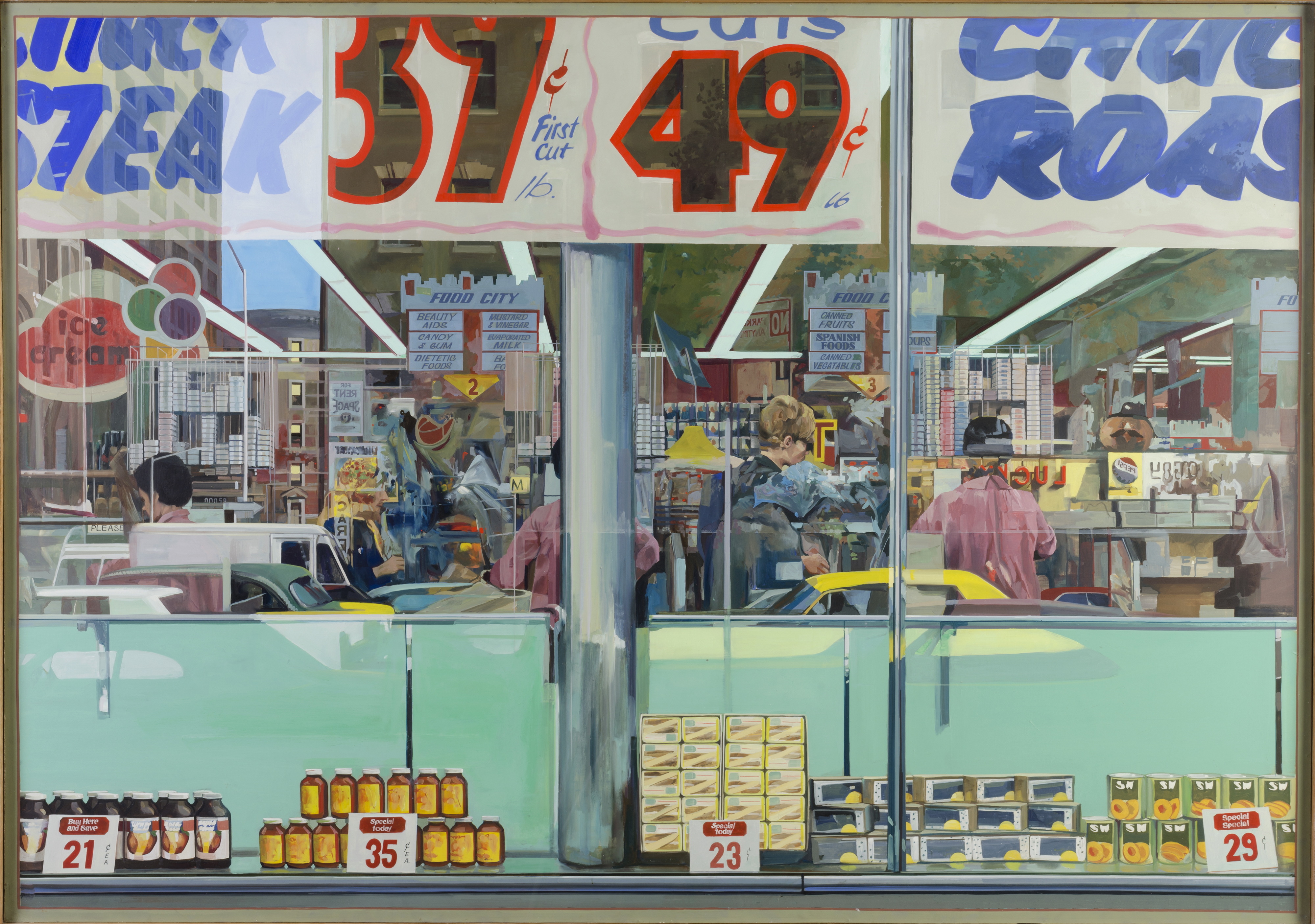Richard Estes
(Kewanee, Illinois, 1932 - )
Food City
1967
Oil, acrylic and graphite on fiberboard
48 x 68 in. (121.9 x 172.7 cm)
Collection of the Akron Art Museum
Purchased, by exchange, with funds raised by the Masked Ball 1955-1963
1981.13
More Information
Richard Estes is a leader among the 1960-70s group of painters referred to as Photorealists because their images are based on photographs, not reality itself. An outgrowth of Pop art, Photorealism shared Pop's focus on consumer goods and popular media. The overabundance of objects seen here—vehicles in the street reflected in the window, rows of food products and garish price banners—reflect both the tedium and energy of urban and retail spaces. From a distance, Estes' painting looks remarkably true-to-life, but on closer inspection, one discovers how artificially constructed the image really is. As the artist described, Food City combines realism and abstraction. He built up different layers of pigment to convey the depth of space and reflective surfaces one sees when looking through a shop window.

